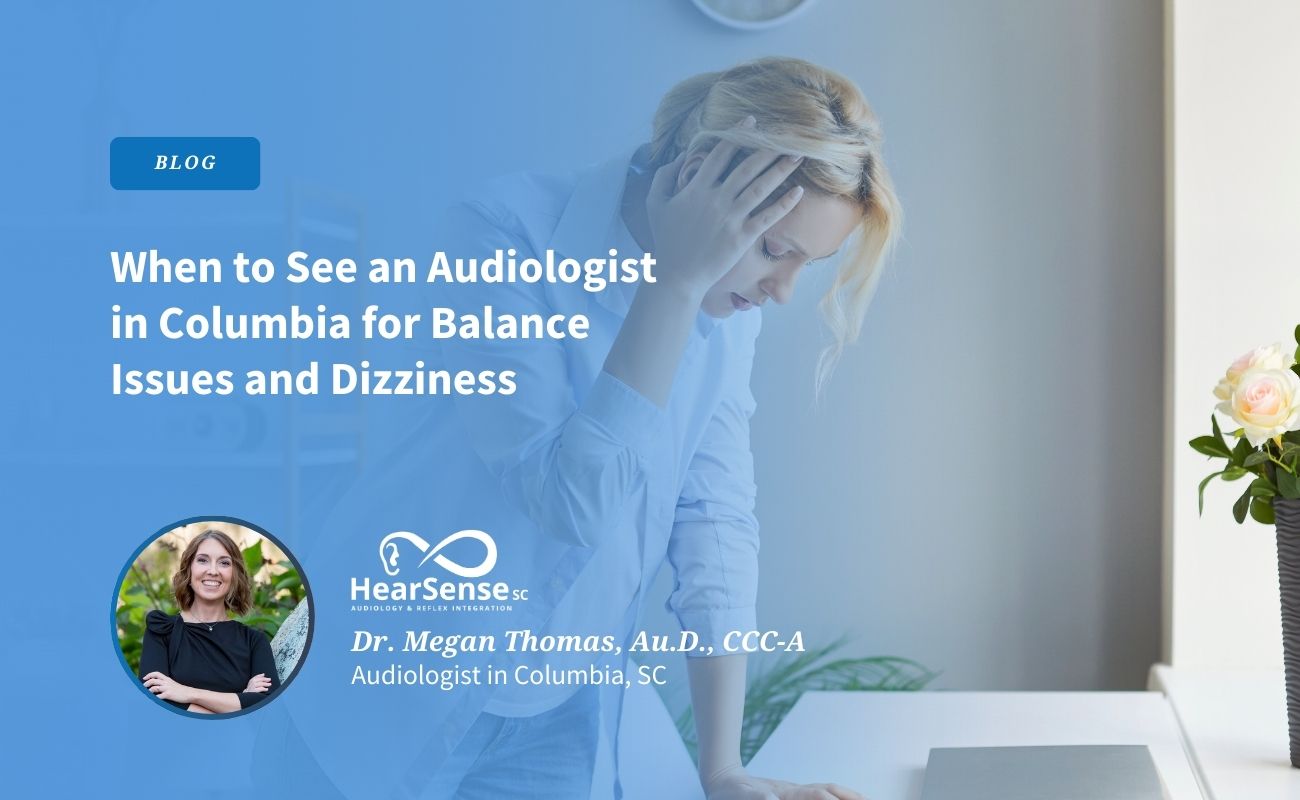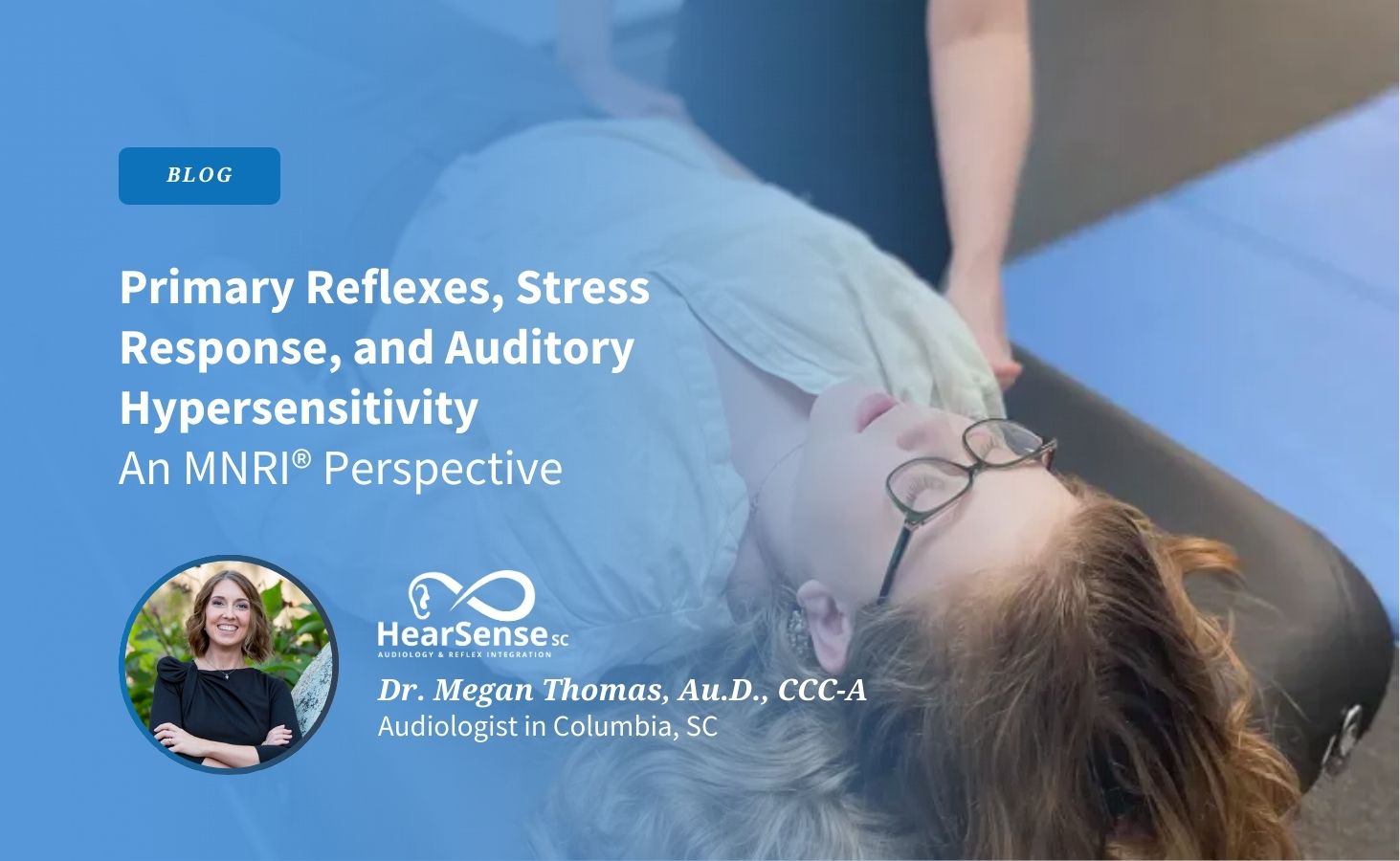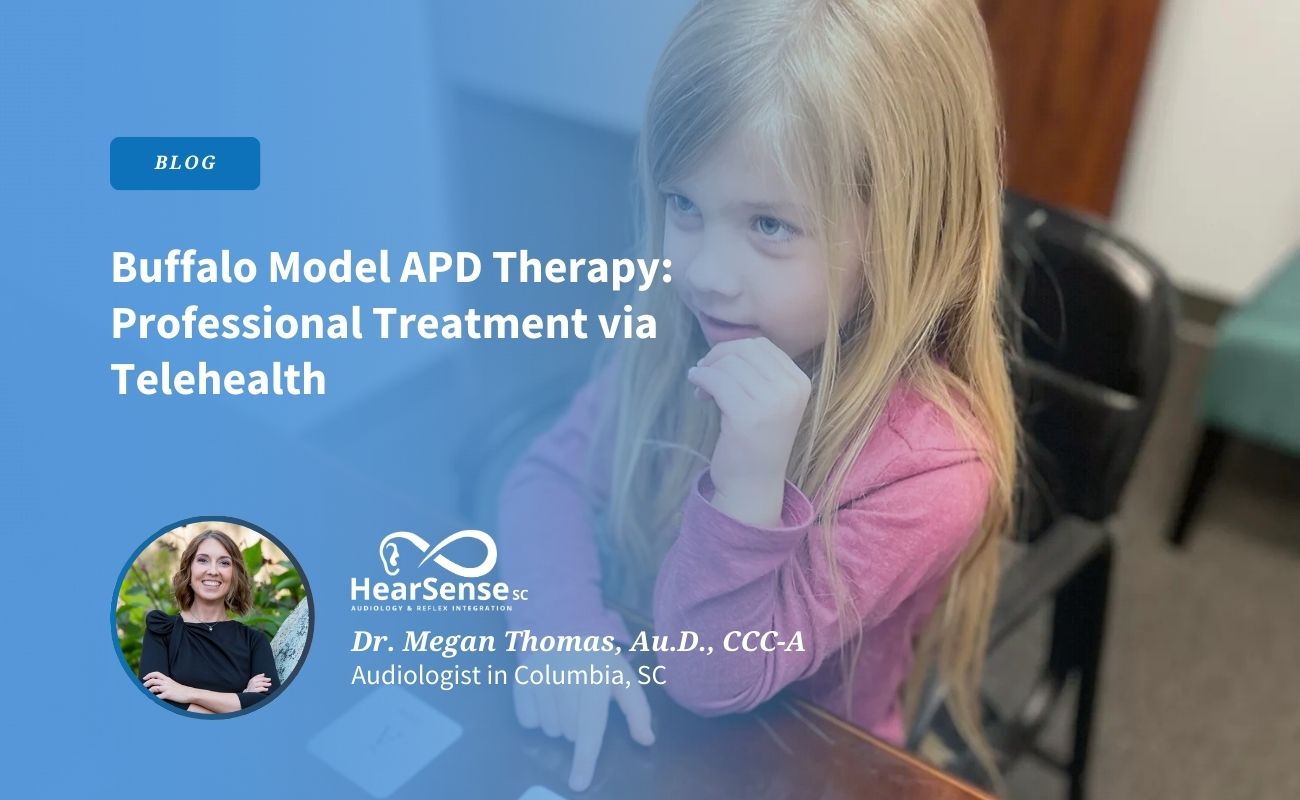The Complete Guide to Hearing Tests at HearSense SC
.jpg)
Getting a hearing test might feel overwhelming, but it's one of the most important steps you can take for your overall health and well-being. Here in Columbia, South Carolina, we see patients every day who wish they had come in sooner - not because their hearing couldn't be helped, but because addressing hearing concerns early opens up so many more possibilities for treatment and improvement.
At HearSense SC, we've designed our hearing evaluations to be thorough yet comfortable, giving you clear answers about your hearing health. Whether you're a USC student noticing difficulty in lecture halls, a professional struggling with conference calls, or a grandparent who wants to hear every word your grandchildren say, understanding your hearing is the first step toward better communication.
Types of Hearing Tests We Offer
We provide a comprehensive range of hearing assessments that work together to create a complete picture of your auditory health. Think of it like getting a physical exam - we check different systems to understand how everything is working together.
Our basic evaluation includes the tests most people are familiar with: pure-tone testing where you listen for beeps at different volumes, speech testing where you repeat words back to us, and bone conduction testing that helps us understand exactly where any hearing difficulties might be coming from.
For more detailed information, we have advanced testing options available. These include tests that measure how your inner ear responds to sound (OAEs), assessments that check your eardrum function (tympanometry), and specialized evaluations that examine how your brain processes sound (ABR testing).
What to Expect During Your Appointment
Walking into our Columbia clinic for your hearing test, you'll find a welcoming environment designed to put you at ease. Most appointments take between one to two hours, and we encourage you to bring a family member or friend to have a familiar voice in the room.
We start every appointment with a conversation. Tell us about any hearing concerns you've noticed, whether it's difficulty hearing in restaurants along Main Street, trouble following conversations at work, or missing parts of sermons at your local church. These details help us tailor our testing to address your specific situations.
Our testing takes place in a quiet, specially designed booth that blocks out the sounds of Columbia traffic and other distractions. You'll wear comfortable headphones, and most of the time, all you need to do is listen and respond when you hear sounds. Many patients tell us the testing process is actually quite relaxing.
Between tests, we'll explain what we're finding and what it means. You're never left wondering what's happening or feeling confused about the process.
Core Hearing Tests: Pure-Tone, Bone Conduction, and Speech Testing
Pure-tone testing is probably what you picture when you think of a hearing test. We play tones at different pitches - from low rumbles like thunder to high notes like birds chirping - and ask you to signal when you hear them. This creates your personal hearing profile, showing us exactly which sounds you hear well and which ones might be slipping away.
What makes this test so valuable is how it relates to your daily life in Columbia. Those high-frequency sounds we test? They're the same ones that help you understand consonants in speech. The low frequencies? They give speech its power and help you hear in noisy environments like busy restaurants in the Vista.
Bone conduction testing might seem unusual at first - we place a small device behind your ear that gently vibrates - but it gives us incredibly important information. This test bypasses your outer and middle ear entirely, letting us know if your inner ear is working properly. If you can hear well through bone conduction but not through regular headphones, we know the problem is likely something treatable, like wax buildup or a middle ear issue.
Speech testing brings everything together by assessing how well you understand actual words and sentences. We might ask you to repeat words at different volume levels or understand speech with background noise playing. This test often reveals the real-world challenges you face better than any other assessment.
Advanced Testing: ABR, OAEs, and Tympanometry
When we need to dig deeper into your hearing system, we have several advanced tests that provide detailed information about specific parts of your auditory pathway.
Auditory Brainstem Response (ABR) testing measures how well sound travels from your ear to your brain. You simply relax while we place small sensors near your ears and forehead. This test is particularly helpful when we need to assess hearing in young children or when other tests haven't given us complete answers.
Otoacoustic Emissions (OAEs) testing checks the tiny hair cells in your inner ear - the ones responsible for fine-tuning your hearing and helping you pick out conversations in crowded places. A small probe placed in your ear measures sounds that your inner ear produces naturally. When these cells are healthy, they actually create sounds we can measure.
Tympanometry evaluates your eardrum and middle ear function by changing air pressure in your ear canal. This test quickly identifies common problems like fluid behind the eardrum or wax blockages that might be affecting your hearing.
Acoustic reflex testing checks a protective mechanism in your ear that activates when loud sounds occur. This reflex normally protects your hearing from damage, and testing it gives us additional information about your middle ear and auditory nerve function.
How Hearing Tests Differ from APD Evaluations
Here's something many people don't realize: you can hear sounds perfectly well but still struggle to understand speech, especially in challenging listening environments. This is where the difference between hearing tests and Auditory Processing Disorder (APD) evaluations becomes important.
Regular hearing tests focus on whether you can detect sounds at different volumes and frequencies. They tell us how well your ears are picking up sound waves and converting them into electrical signals.
APD evaluations go several steps further, examining how your brain processes and interprets those signals once they arrive. These evaluations take much longer - typically 3-4 hours - and include specialized tests that assess things like understanding speech when different sounds are presented to each ear, remembering sequences of sounds, and processing information when background noise is present.
At our Columbia practice, we're uniquely qualified to provide both types of testing. If your hearing test comes back normal but you're still struggling with understanding conversation, particularly in noisy environments like restaurants or social gatherings, an APD evaluation might provide the answers you need.
Preparing for Your Hearing Test
The good news about hearing tests is that they require very little preparation. Come as you are - no fasting, no special preparations, just yourself and any questions you might have.
If you wear hearing aids, bring them along even though we'll test your unaided hearing first. We often want to check how well your current devices are working for you and may make programming adjustments.
Try to avoid loud environments for about 24 hours before your test if possible. This means skipping that football game or concert the night before, as recent noise exposure can temporarily affect your hearing thresholds.
Bring a list of medications you're currently taking. Some medications can affect hearing, and knowing what you're taking helps us interpret your results accurately.
Most importantly, come prepared to be honest about your hearing concerns. The more we know about the specific situations where you struggle - whether it's hearing your spouse in the car, understanding your doctor during appointments, or following conversations at family gatherings - the better we can help you.
Understanding Your Results
After your testing is complete, we sit down together to review your results in plain language. No confusing medical jargon - just clear explanations of what we found and what it means for your daily life here in Columbia.
Your audiogram might look like a complicated graph, but we'll walk through it step by step, showing you which sounds you hear well and which frequencies present challenges. We'll relate these findings to real-world situations you encounter regularly.
If we identify hearing loss, we'll explain the type and degree, but more importantly, we'll focus on solutions. Modern hearing aids are remarkably advanced, and many of our patients are amazed by how much clearer their world becomes with proper amplification and professional fitting.
If your hearing test is normal but you're still experiencing difficulties, we might recommend further testing or evaluation for auditory processing concerns. Remember, finding answers is always the first step toward finding solutions.
Take the Next Step Toward Better Hearing
Living in Columbia means enjoying everything our city has to offer - from cheering on the Gamecocks to enjoying concerts at Township Auditorium, from family barbecues to business meetings. Don't let hearing concerns keep you from fully participating in the life you love.
If you've been putting off a hearing evaluation, wondering if you really need one, or simply want peace of mind about your hearing health, we're here to help. Our team at HearSense SC combines advanced testing technology with the personal care that comes from being part of this community.
Call us at (803) 567-2533 to schedule your comprehensive hearing evaluation. Taking this step isn't just about testing your hearing - it's about ensuring you can continue to engage fully with your family, your work, and your community for years to come.
Related Articles
Read more articles
We have more information about APD, Audiology, hearing aids, hearing loss and more.

When to See an Audiologist in Columbia for Balance Issues and Dizziness

Primary Reflexes, Stress Response, and Auditory Hypersensitivity: An MNRI® Perspective


